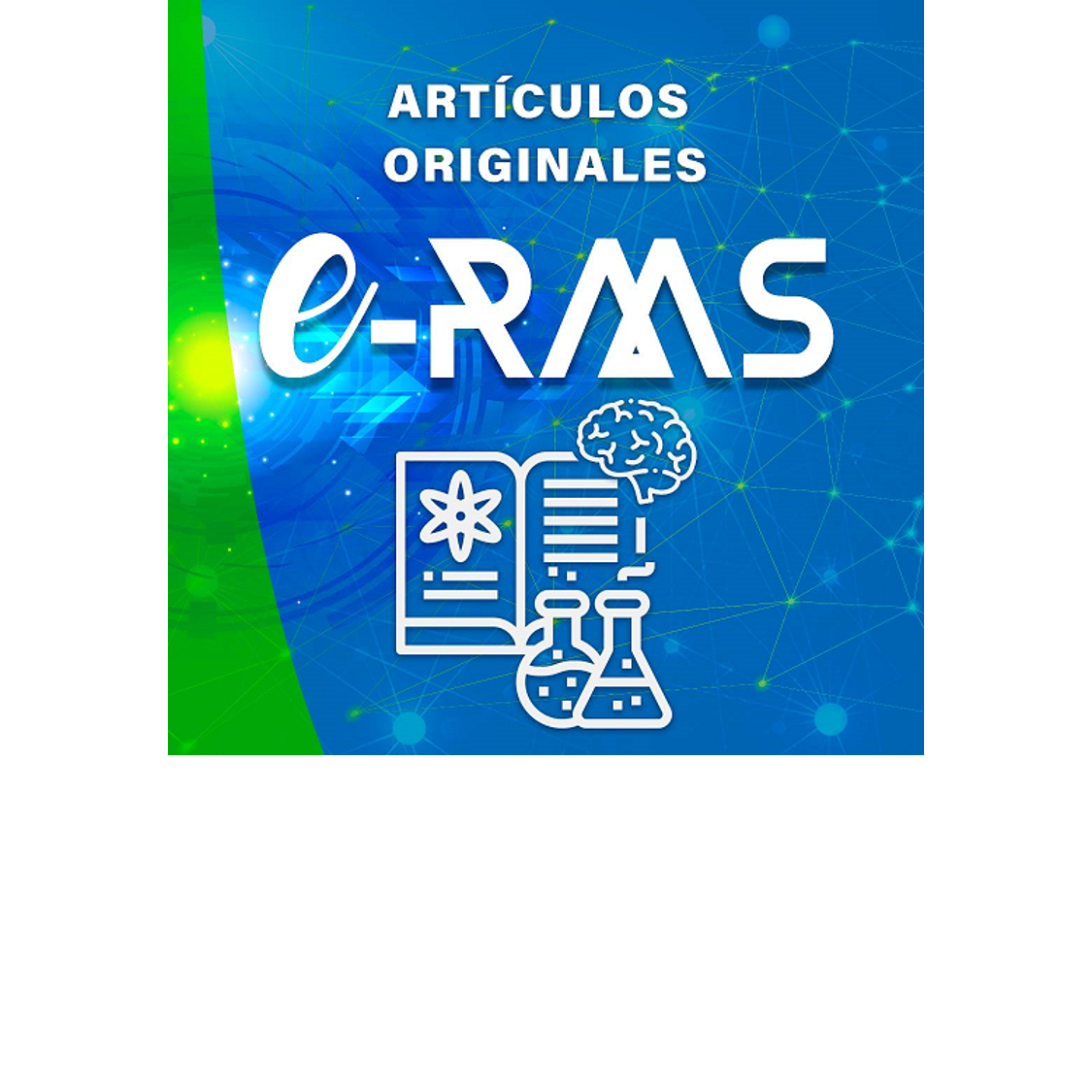Integración de la inteligencia artificial en procesos de ingeniería: Un análisis crítico
DOI:
https://doi.org/10.61286/e-rms.v3i.221Keywords:
Artificial intelligence, engineering processes, operational efficiency, project managementAbstract
This study conducted a systematic review of the literature on the integration of artificial intelligence (AI) into engineering processes, with an emphasis on the construction industry. A diverse analysis of sources highlighted how AI is transforming traditional practices in this field, improving operational efficiency and optimizing project management. Methodologically, a PRISMA methodology was used to ensure transparency in the research. An exhaustive search was conducted in different databases, including Google Scholar, Scielo, IEEE Xplore, ScienceDirect, and Scopus, using several search terms related to "artificial intelligence in engineering," "process automation," "cybersecurity," and "automated classification." The search was limited to articles published between 2015 and 2025, and only recent and relevant sources were included. Inclusion and exclusion criteria were applied to exclude and select suitable sources for the research. In conclusion, although artificial intelligence offers significant opportunities to improve engineering processes and outcomes in construction and other engineering fields, it is essential to address the ethical implications and ensure that engineers are adequately prepared to use these technologies responsibly and effectively
Downloads
References
Amador, J. de J. M., & Espinoza, M. C. C. (2020). La inteligencia artificial y su comportamiento en la ingeniería de sistemas. Gestión Competitividad e Innovación, 8(2), Article 2. https://pca.edu.co/editorial/revistas/index.php/gci/article/view/128
Basu, S., Majumdar, B., Mukherjee, K., Munjal, S., & Palaksha, C. (2023). Artificial intelligence–HRM interactions and outcomes: A systematic review and causal configurational explanation. Human Resource Management Review, 33(1), 100893. https://doi.org/10.1016/j.hrmr.2022.100893
Benítez, E., & Balaguer, Á. (2024). Reconfigurando la educación superior: La integración de la inteligencia artificial para el desarrollo de competencias del siglo XXI. Revistas Científicas de Educación en Red. https://doi.org/10.58079/12nb6
Blake, R. W., Mathew, R., George, A., & Papakostas, N. (2021). Impact of artificial intelligence on engineering: Past, present and future. Procedia CIRP, 104, 1728–1733. https://doi.org/10.1016/j.procir.2021.11.291
Bolaño-García, M., & Duarte-Acosta, N. (2024). Una revisión sistemática del uso de la inteligencia artificial en la educación. Revista Colombiana de Cirugía, 39(1), 51–63. https://doi.org/10.30944/20117582.2365
Bostrom, N. (2014). Superintelligence: Paths, dangers, strategies (pp. xvi, 328). Oxford University Press.
Cheng, C. C., Chung, E., & Correa, N. (2023). La inteligencia artificial y su impacto en la industria de la ingeniería. REICIT, 3(1), Article 1. https://doi.org/10.48204/reict.v3n1.3948
Chenlei, Z. (2025). Thermal energy cycle and product appearance design in precision engineering manufacturing process based on artificial intelligence. Thermal Science and Engineering Progress, 57, 103161. https://doi.org/10.1016/j.tsep.2024.103161
Del Prado, A. M., & Fernández, N. E. (2024). La integración de la inteligencia artificial en la formación de ingenieros. En M. S. Cañas (Ed.), II Congreso de Ciencia y Tecnología del NOA. https://riaa-tecno.unca.edu.ar/handle/123456789/1144
Fontenla-Romero, Ó., & Luis Calvo-Rolle, J. (2018). Artificial intelligence in engineering: Past, present and future. Dyna (Spain), 93(4), 350–352. https://doi.org/10.6036/8639
Frey, C. B., & Osborne, M. A. (2017). The future of employment: How susceptible are jobs to computerisation? Technological Forecasting and Social Change, 114, 254–280. https://doi.org/10.1016/j.techfore.2016.08.019
Guo, D., Yang, T., & Zhang, D. (2025). On the implications of artificial intelligence methods for feature engineering in reliability sector. Alexandria Engineering Journal, 117, 463–471. https://doi.org/10.1016/j.aej.2024.12.094
Kaplan, A., & Haenlein, M. (2019). Siri, Siri, in my hand: Who’s the fairest in the land? On the interpretations, illustrations, and implications of artificial intelligence. Business Horizons, 62(1), 15–25. https://doi.org/10.1016/j.bushor.2018.08.004
Martínez Rámila, K. P., & Ortiz Méndez, V. (2024). Inteligencia artificial en revisiones sistemáticas de literatura: Experiencias de estudiantes en el contexto universitario. Revista Paraguaya de Educación a Distancia, 5(2), 66–75. https://doi.org/10.56152/reped2024-dossierIA1-art6
Mendoza, J. G., Quispe, M. B., & Muñoz, S. P. (2022). Una revisión sobre el rol de la inteligencia artificial en la industria de la construcción. Ingeniería y Competitividad, 24(2). https://doi.org/10.25100/iyc.v24i2.11727
Meza, J. (2023). El papel de la inteligencia artificial en el upstream de la industria petrolera: Una revisión. Investigación y Acción, 3(1), Article 1. https://doi.org/10.15648/invefor.v3i1.3828
Monsalve-Peña, L., Carrión-Martínez, P., & González-Cabrera, C. (2024). Revisión sistemática del impacto de la inteligencia artificial en la industria del entretenimiento. Revista Enfoques de la Comunicación, 12, Article 12. https://revista.consejodecomunicacion.gob.ec/index.php/rec/article/view/206
Muñoz, J. Á., & Pérez Fernández, R. (2019). La integración de la inteligencia artificial en los procesos y metodologías de diseño naval. Ingeniería Naval, 978, 74–84. https://dialnet.unirioja.es/servlet/articulo?codigo=6913872
Rafael-Miñope, W. F., Vilcherres-Lizárraga, P. V. R., Muñoz-Pérez, S. P., Tuesta-Montez, V. A., & Mejía-Cabrera, H. I. (2022). Modelamiento de procesos hidrológicos aplicando técnicas de inteligencia artificial: Una revisión sistemática de la literatura. Iteckne, 19(1), 46–60. https://doi.org/10.15332/iteckne.v19i1.2645
Rodríguez-Acasio, F. J. (2024). Alcance de la inteligencia artificial en la ingeniería. Ingenium et Potentia: Revista Electrónica Multidisciplinaria de Ciencias Básicas, Ingeniería y Arquitectura, 6(10), 1–3. https://doi.org/10.35381/i.p.v6i10.3873
Villacorta Vidal, C. A., Enciso Suárez, J. R., & Mendoza de los Santos, A. C. (2023). Impacto de la inteligencia artificial en la gestión de servicios de tecnología de información en una organización. Revista Ingeniería Investiga, 5, 19. https://doi.org/10.47796/ing.v5i0.794
Weisz, E., Herold, D. M., & Kummer, S. (2023). Revisiting the bullwhip effect: How can AI smoothen the bullwhip phenomenon? The International Journal of Logistics Management, 34(7), 98–120. https://doi.org/10.1108/IJLM-02-2022-0078
Zenteno, J. A. C., Vintimilla, A. D. O., & Espinoza, J. J. S. (2024). The impact of artificial intelligence on project management. Revista Tecnológica - ESPOL, 36(E1), Article E1. https://doi.org/10.37815/rte.v36nE1.1190

Published
How to Cite
Issue
Section
License
Copyright (c) 2025 Giancarlo Meza, Jorge Franco, Noemi Mencia, Roger Rivera, Carmen Lavado

This work is licensed under a Creative Commons Attribution-NonCommercial-NoDerivatives 4.0 International License.
Las publicaciones en acceso abierto de e-RMS están protegidas por derechos reservados y se rigen por la Licencia Pública Creative Commons Attribution-NonCommercial-NoDerivatives 4.0 International (CC BY-NC-ND 4.0). Se permite el uso no comercial de este material, con atribuciones al autor. No se permiten derivados de esta versión.













